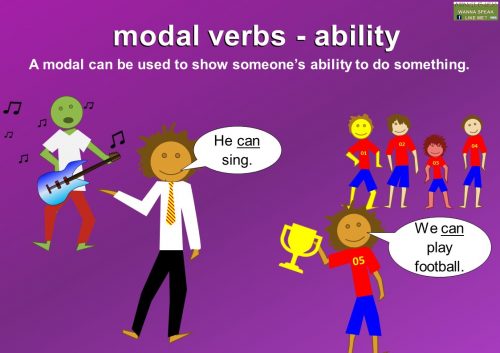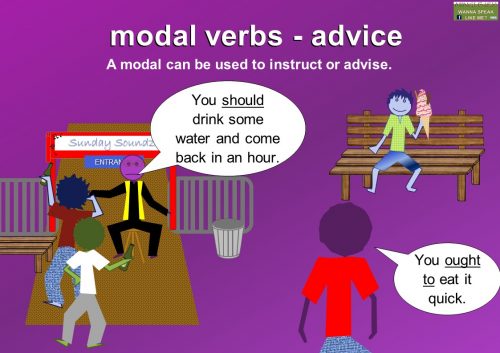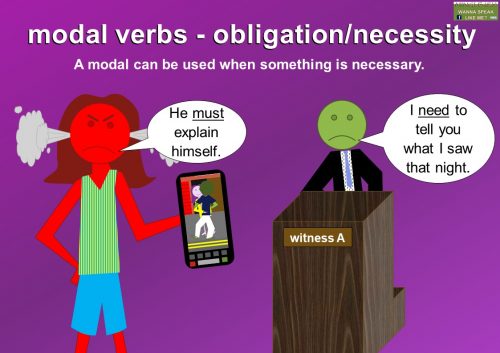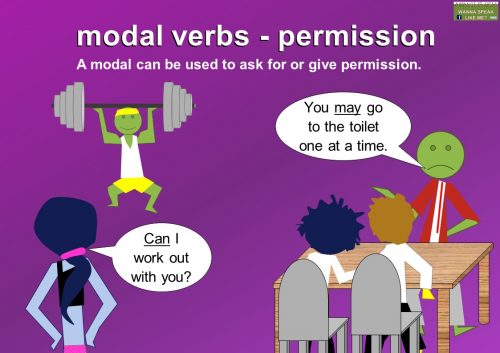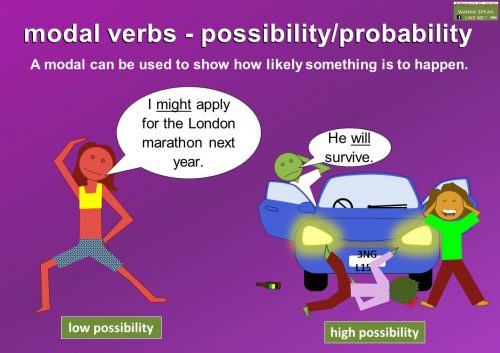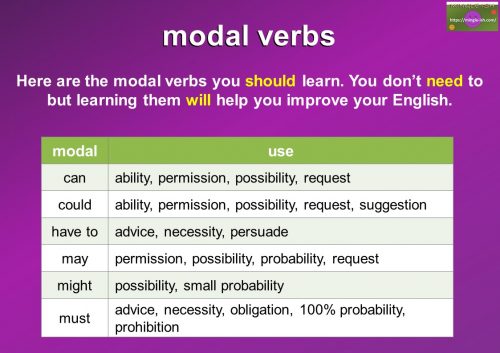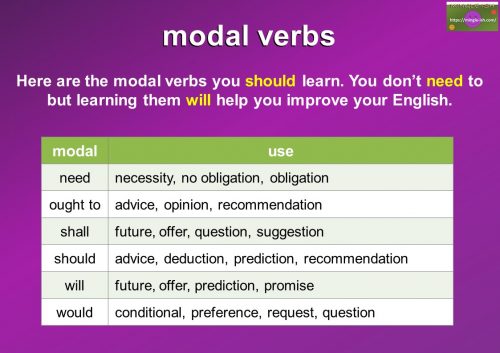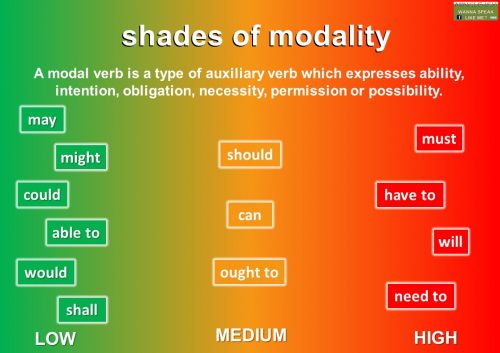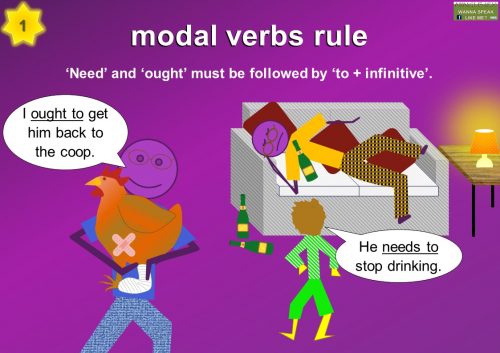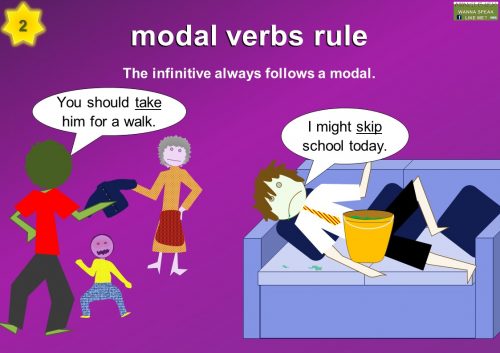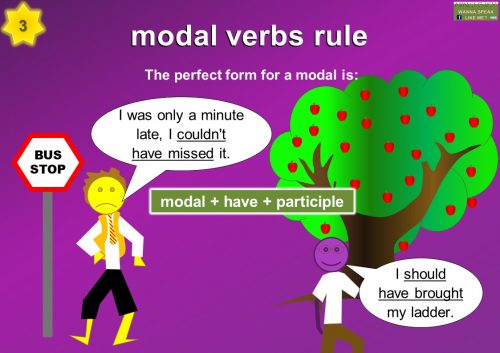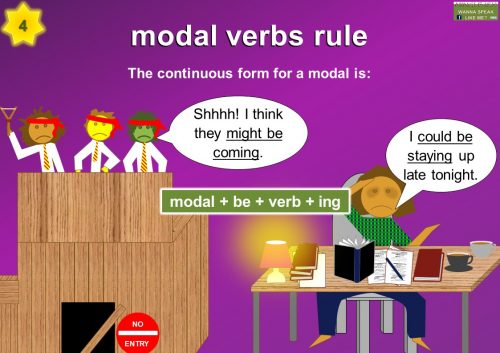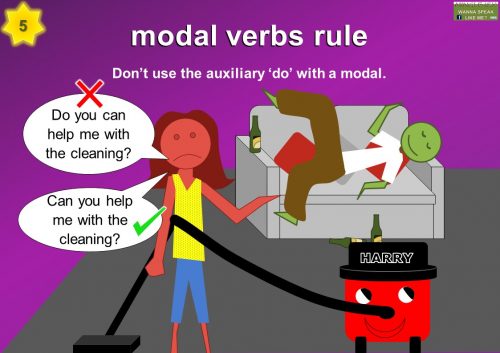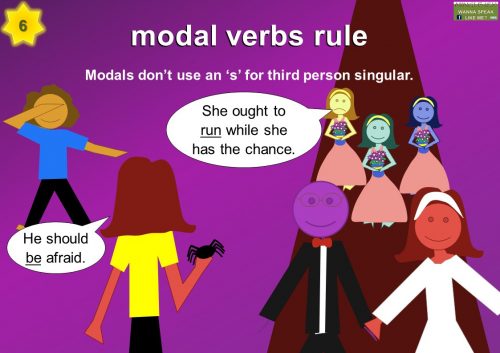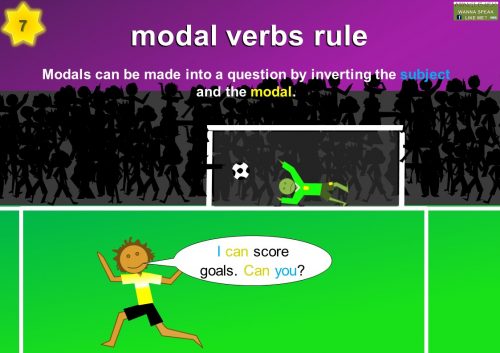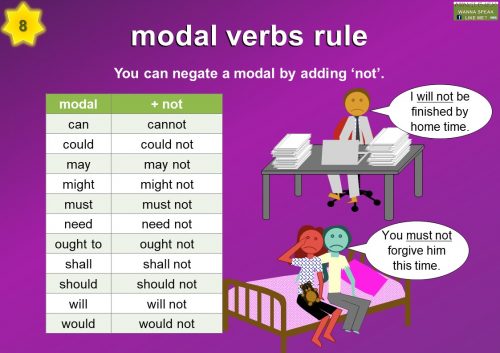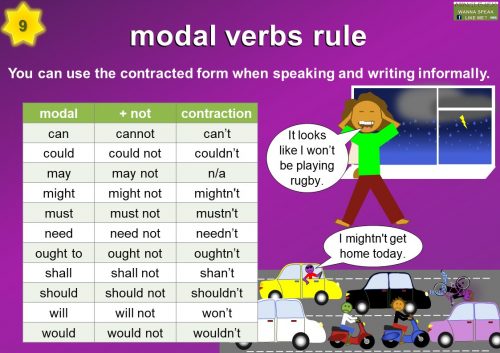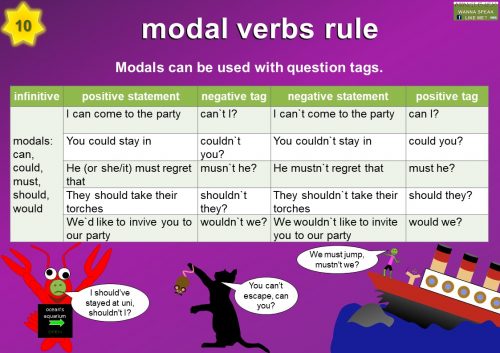A modal verb is a type of auxiliary verb (which is also called a helping verb). You may also see them referred to as ‘modal auxiliaries’
Modals can express:
- ability
- intention
- obligation
- necessity
- permission
- possibility
Their job is to change or affect other verbs in a sentence. They differ from normal verbs as they don’t follow the same patterns.
examples of modals
- A modal can be used to show ability
example – He can sing. - A modal can be used to instruct or advise
example – You should drink some water. - A modal can be used when something is necessary
example – I need to tell you what I saw last night. - A modal can be used to ask for or give permission
example – You may go to the toilet. - A modal can be used to show how likely something is to happen#
example – I might apply for the London Marathon next year.
Here are some more examples of modal verbs in action with pictures.
modal verbs list
Modal verbs are used frequently in everyday speech, especially in casual conversations with friends and family. When you get the chance, try and revise the following list of modals and their uses.
- can
uses – ability, permission, possibility, request - could
uses – ability, permission, possibility, request, suggestion - have to
uses – advice, necessity, persuade - may
uses – permission, possibility, probability, request - might
uses – possibility, small probability - must
uses – advice, necessity, obligation, 100% probability, prohibition - need
uses – necessity, no obligation, obligation - ought to
uses – advice, opinion, recommendation - shall
uses – future, offer, question, suggestion - should
uses – advice, deduction, prediction, recommendation - will
uses – future, offer, prediction, promise - would
uses – conditional, preference, request, question
common modal verbs and their function
Now you know what a modal verb is, click on the headings below to learn each one in more detail with meaning and picture examples.
shades of modality
Some modals are stronger than others. Take a look at the picture below and see how strong each one is.
top 10 tips for modal verbs
Now you know what a modal verb is and how to use them, I’ll give you my top 10 tips about modals.
Modal verbs are a type of auxiliary verb. You can find out about auxiliary verbs here.
